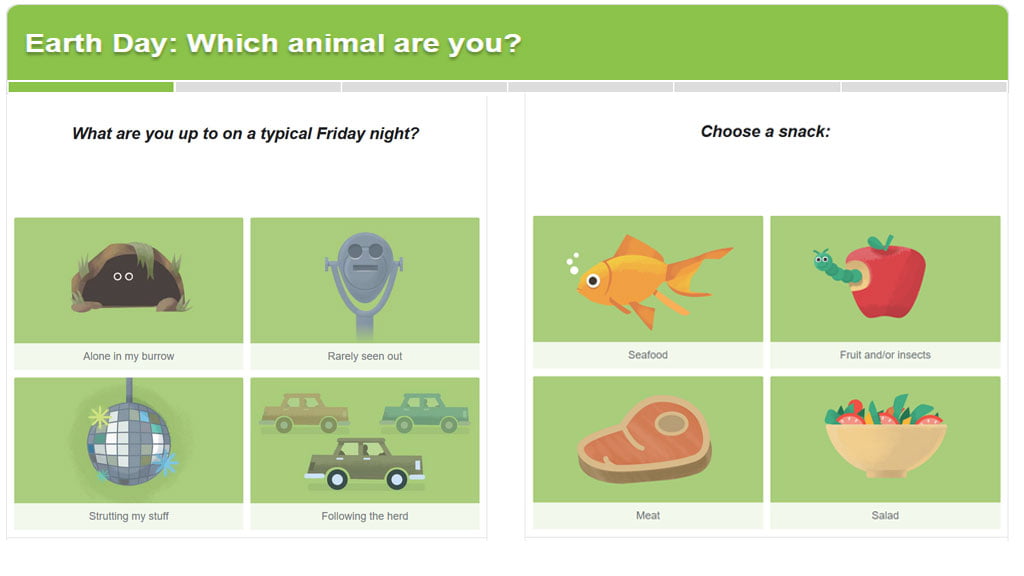Banking trivia offers fascinating facts and challenges for anyone curious about the world of finance. From historical milestones to modern-day banking innovations, these questions test your knowledge of the financial sector.
Introduction to Banking Trivia
Banking has long been a cornerstone of modern economies, and understanding its history, developments, and mechanics is key to understanding how the world functions today. For trivia enthusiasts, banking trivia questions serve as an exciting way to explore these aspects. Whether you’re looking for fun facts to challenge your friends or simply wish to increase your own financial knowledge, these trivia questions can provide you with valuable insights.
The world of banking is vast, and its evolution has played a crucial role in shaping today’s economic landscape. From the inception of the first banks to the digital revolution in finance, trivia questions can cover a range of topics. In this article, we will explore various banking trivia questions and answers, ranging from historical facts to contemporary developments. By the end of the article, you’ll not only have fun learning about banking but will also gain a deeper appreciation for the financial world.
Banking Trivia Questions and Answers
Below is a collection of 101 banking trivia questions and answers, categorized into different topics for better organization:
History of Banking
Question: Which country is credited with establishing the first modern bank in the 14th century?
Answer: Italy (Banca Monte dei Paschi di Siena).
Question: When was the Federal Reserve System created in the United States?
Answer: 1913.
Question: Who is considered the father of modern banking?
Answer: Giovanni di Bicci de’ Medici.
Question: In which year was the Bank of England established?
Answer: 1694.
Question: What was the original name of the Bank of America?
Answer: Bank of Italy.
Question: What was the first national bank of the United States?
Answer: The First Bank of the United States (1791).
Question: Which ancient civilization is believed to have invented the concept of banking?
Answer: Mesopotamia.
Question: Who founded the first bank in the United States?
Answer: Alexander Hamilton.
Question: The first ATM was installed in which city?
Answer: London.
Question: Which bank is known as the first to issue paper money?
Answer: The Bank of Sweden (Sveriges Riksbank).
More History of Banking
Question: In what year did the European Central Bank (ECB) begin its operations?
Answer: 1998.
Question: Which bank was the first to introduce the concept of credit cards?
Answer: Bank of America.
Question: What year was the first paper money issued in the U.S.?
Answer: 1861.
Question: Who was the first woman to serve as the U.S. Treasury Secretary?
Answer: Janet Yellen.
Question: The first banking act in the U.S. was passed in which year?
Answer: 1863 (National Bank Act).
Question: Which country’s central bank was the first to adopt negative interest rates in 2015?
Answer: Sweden.
Question: Who was the first African-American to serve as a U.S. bank president?
Answer: William H. Lewis.
Question: What major banking institution did J.P. Morgan & Co. eventually merge with in 2000?
Answer: Chase Manhattan Corporation.
Question: The “Glass-Steagall Act” was passed in which year?
Answer: 1933.
Question: What major event led to the creation of the FDIC in 1933?
Answer: The Great Depression.
Banking Terms and Concepts
Question: What does “FDIC” stand for?
Answer: Federal Deposit Insurance Corporation.
Question: What is the term used to describe the process of analyzing and managing the financial risks faced by a bank?
Answer: Risk management.
Question: What is a “credit score”?
Answer: A numerical representation of an individual’s creditworthiness.
Question: What is “APR” in banking terms?
Answer: Annual Percentage Rate.
Question: What is a “mortgage”?
Answer: A loan specifically used to buy real estate.
Question: What does the acronym “ATM” stand for?
Answer: Automated Teller Machine.
Question: What is the term for a person or company that borrows money from a bank?
Answer: Borrower.
Question: What does “interest rate” mean in banking?
Answer: The rate at which interest is paid by borrowers for the use of money.
Question: What is the “Prime Rate”?
Answer: The interest rate that commercial banks charge their most creditworthy customers.
Question: What is “collateral” in terms of a loan?
Answer: An asset pledged by a borrower to secure a loan.
More Banking Terms and Concepts
Question: What is a “checking account”?
Answer: A bank account that allows for deposits and withdrawals and typically does not earn interest.
Question: What does “overdraft” mean?
Answer: A situation where a bank account balance goes below zero, often incurring fees.
Question: What is “savings account”?
Answer: A bank account that earns interest on deposits and typically has a lower interest rate than investments.
Question: What is “bankruptcy”?
Answer: A legal status of a person or entity that cannot repay its debts to creditors.
Question: What is a “bond”?
Answer: A debt security issued by a government or corporation to raise capital.
Question: What is “capital” in banking terms?
Answer: Financial assets or resources held by an institution or individual.
Question: What is a “certificate of deposit” (CD)?
Answer: A time deposit offered by banks with a fixed interest rate and maturity date.
Question: What is “liquidity” in banking?
Answer: The availability of liquid assets to a market or company.
Question: What is “recession” in terms of banking and economy?
Answer: A period of economic decline, typically defined as two consecutive quarters of negative GDP growth.
Question: What is a “credit union”?
Answer: A member-owned financial institution that provides services like banks but typically offers better rates and fewer fees.
Major Banks
Question: Which bank is the largest by assets in the United States?
Answer: JPMorgan Chase.
Question: What bank was founded by J.P. Morgan?
Answer: J.P. Morgan & Co.
Question: Which bank is the largest by assets globally?
Answer: Industrial and Commercial Bank of China (ICBC).
Question: What is the name of the central bank of the United States?
Answer: The Federal Reserve.
Question: What bank is known for its distinctive red and white logo and was founded in 1869?
Answer: Wells Fargo.
Question: Which American bank was once known as the Bank of New York?
Answer: BNY Mellon.
Question: What multinational bank was founded in the United Kingdom in 1690?
Answer: Barclays.
Question: Which German bank is considered one of the largest financial institutions in Europe?
Answer: Deutsche Bank.
Question: What is the name of the Japanese bank that is one of the largest in the world by assets?
Answer: Mitsubishi UFJ Financial Group (MUFG).
Question: Which bank has the slogan “Make life easier”?
Answer: HSBC.
More Major Banks
Question: What Canadian bank is known for its “Big Five” status in the country?
Answer: Royal Bank of Canada (RBC).
Question: Which British bank was established in 1836 and is known for its “NatWest” brand?
Answer: National Westminster Bank.
Question: What U.S.-based bank did the British bank Barclays acquire in 2008?
Answer: Lehman Brothers.
Question: Which major bank operates the largest ATM network in the U.S.?
Answer: Bank of America.
Question: What is the primary purpose of the European Central Bank (ECB)?
Answer: To manage the euro and maintain price stability in the eurozone.
Question: Which multinational bank was founded in 1852 and has a famous building on Wall Street?
Answer: Goldman Sachs.
Question: What bank is the largest in Switzerland by total assets?
Answer: UBS.
Question: Which large French bank was founded in 1848 and is one of the “Big Four” French banks?
Answer: BNP Paribas.
Question: Which major Asian bank is headquartered in Hong Kong and is known for its role in global trade?
Answer: Standard Chartered Bank.
Question: What global bank offers a wide array of services including investment banking, asset management, and retail banking, and is headquartered in New York?
Answer: Citigroup.
Financial Products and Services
Question: What type of loan is specifically used for buying a home?
Answer: Mortgage.
Question: What financial product allows individuals to invest in the stock market through a mutual fund?
Answer: Mutual Fund.
Question: What is the term for a loan to purchase a car?
Answer: Auto loan.
Question: What financial instrument allows the issuer to borrow money for a fixed period at a fixed interest rate?
Answer: Bond.
Question: What is an “IRA” in terms of retirement savings?
Answer: Individual Retirement Account.
Question: What is a “home equity loan”?
Answer: A loan that allows homeowners to borrow against the equity in their home.
Question: What is “insurance” in financial terms?
Answer: A contract that compensates the insured party in the event of a loss.
Question: What type of account allows individuals to save money for short-term goals and earn interest?
Answer: Savings account.
Question: What is the purpose of a “Roth IRA”?
Answer: A retirement savings account where contributions are made after tax, and withdrawals in retirement are tax-free.
Question: What is “diversification” in investing?
Answer: The practice of spreading investments across various asset classes to reduce risk.
More Financial Products and Services
Question: What is the term for a debt instrument that pays regular interest and is typically issued by governments or corporations?
Answer: Bond.
Question: What is “short selling” in stock markets?
Answer: The practice of selling borrowed shares with the intention to buy them back at a lower price.
Question: What is a “CD” in banking terms?
Answer: Certificate of Deposit.
Question: What financial product is designed for individuals to have access to money for future medical needs?
Answer: Health Savings Account (HSA).
Question: What is “debt consolidation”?
Answer: The process of combining multiple debts into a single loan to simplify payments.
Question: What is the purpose of a “personal loan”?
Answer: To borrow money for personal use without collateral.
Question: What type of account provides unlimited check writing and is used for daily transactions?
Answer: Checking account.
Question: What is the term used for the fees charged by financial institutions for withdrawing funds from ATMs that are not owned by them?
Answer: ATM fees.
Question: What is the primary function of an “investment bank”?
Answer: To assist in raising capital for corporations and governments through securities.
Question: What is the difference between “stocks” and “bonds”?
Answer: Stocks represent ownership in a company, while bonds are a form of debt issued by companies or governments.
Global Banking
Question: Which country has the largest number of banks?
Answer: India.
Question: Which country has the oldest central bank?
Answer: Sweden (Sveriges Riksbank).
Question: Which bank was founded in the Netherlands in 1720 and is one of the largest financial institutions in Europe?
Answer: ING Group.
Question: Which bank in the UK is considered a “challenger bank” and focuses on providing mobile-only banking services?
Answer: Monzo.
Question: Which country’s government established the “Reserve Bank of India” in 1935?
Answer: India.
Question: In which country is the “Singapore Exchange” (SGX) located?
Answer: Singapore.
Question: What global financial institution is based in Paris and works to promote international monetary cooperation?
Answer: The International Monetary Fund (IMF).
Question: What is the name of the central bank of Japan?
Answer: Bank of Japan (BOJ).
Question: What country is home to the “Dubai International Financial Centre” (DIFC)?
Answer: United Arab Emirates.
Question: In which country is the largest banking institution in Latin America, “Banco do Brasil”?
Answer: Brazil.
Question: What is the term for the practice of storing money abroad in tax havens, often used by wealthy individuals and corporations?
Answer: Offshore banking.
More Global Banking
Question: In which country did the “Hong Kong and Shanghai Banking Corporation” (HSBC) originate?
Answer: Hong Kong.
Question: What major Chinese financial institution has its headquarters in Beijing and is among the largest banks worldwide?
Answer: Industrial and Commercial Bank of China (ICBC).
Question: What European city is known as a major international banking and financial hub and is the home of the European Central Bank?
Answer: Frankfurt, Germany.
Question: Which Asian country is home to the largest stock exchange in the world by market capitalization?
Answer: Japan (Tokyo Stock Exchange).
Question: In which country did the “Korean Exchange” (KRX) operate?
Answer: South Korea.
Question: What central bank is responsible for managing the currency and monetary policy for the euro area countries?
Answer: European Central Bank (ECB).
Question: Which country has the second-largest banking market in the world, after the United States?
Answer: China.
Question: Which global city is often considered the financial capital of the world?
Answer: New York City.
Question: Which central bank is the official bank of Australia?
Answer: Reserve Bank of Australia (RBA).
Question: What financial institution was responsible for issuing the first internationally recognized credit card in 1958?
Answer: Bank of America (VISA).
The Evolution of Banking: From Ancient Times to Modern Day
Banking, as we know it today, has undergone significant transformations over the centuries. Its roots date back to ancient civilizations, where the first forms of lending and money exchange were practiced. Below is a brief timeline of banking evolution:
| Period | Event |
|---|---|
| Ancient Times | The concept of money lending began with the Babylonians. |
| 500 BCE | The first known bank, the Temple of Artemis, was founded in ancient Greece. |
| 1400s | The Medici family of Italy founded the first modern bank, known as the Medici Bank. |
| 1600s | The first joint-stock banks appeared in England. |
| 1900s | The Federal Reserve System was established in the United States. |
| 2000s | The digital banking revolution began with online banking and mobile apps. |
As you can see, banking has evolved from simple money exchange to a complex global network. This history provides a rich foundation for trivia questions, making the financial world both exciting and informative to explore.
Key Banking Terms Every Enthusiast Should Know
In the world of banking, there are certain terms that every enthusiast should be familiar with. Understanding these terms is essential for grasping the banking industry’s inner workings. Below is a glossary of key banking terms:
| Term | Definition |
|---|---|
| ATM (Automated Teller Machine) | A machine that allows customers to perform financial transactions without a teller. |
| APR (Annual Percentage Rate) | The yearly interest rate charged on borrowed money, including fees. |
| FDIC (Federal Deposit Insurance Corporation) | A U.S. government agency that insures deposits in banks up to $250,000 per depositor. |
| Mortgage | A loan specifically for purchasing property. |
| Credit Score | A numerical representation of a person’s creditworthiness. |
Conclusion
Banking trivia is an exciting and educational way to delve deeper into the financial world. Whether you’re fascinated by its historical roots, technological advancements, or the key terms that govern it, there’s always something new to learn. As we’ve seen throughout this article, banking trivia spans a wide range of topics, from the evolution of banks to the digital revolution, and even quirky fun facts. Now that you’ve absorbed some fun and interesting facts, you’re ready to impress your friends with your newfound banking knowledge!
FAQs About Banking Trivia Questions
What is the significance of banking in the global economy?
Answer: Banking is crucial for providing financial services, facilitating trade, and supporting economic growth.
How did the Medici family impact modern banking?
Answer: They established the first modern bank, which laid the foundation for contemporary banking systems.
When did online banking become widely available?
Answer: Online banking became widely available in the late 1990s.
What role do banks play in currency exchange?
Answer: Banks facilitate currency exchange for individuals and businesses involved in international trade.
How has technology transformed banking services?
Answer: Technology has led to the development of online banking, mobile apps, and the rise of cryptocurrencies.



